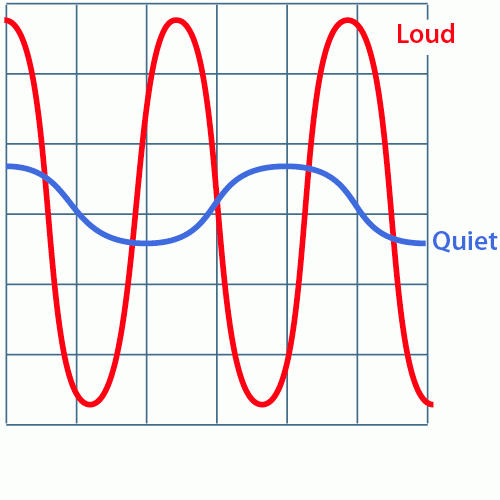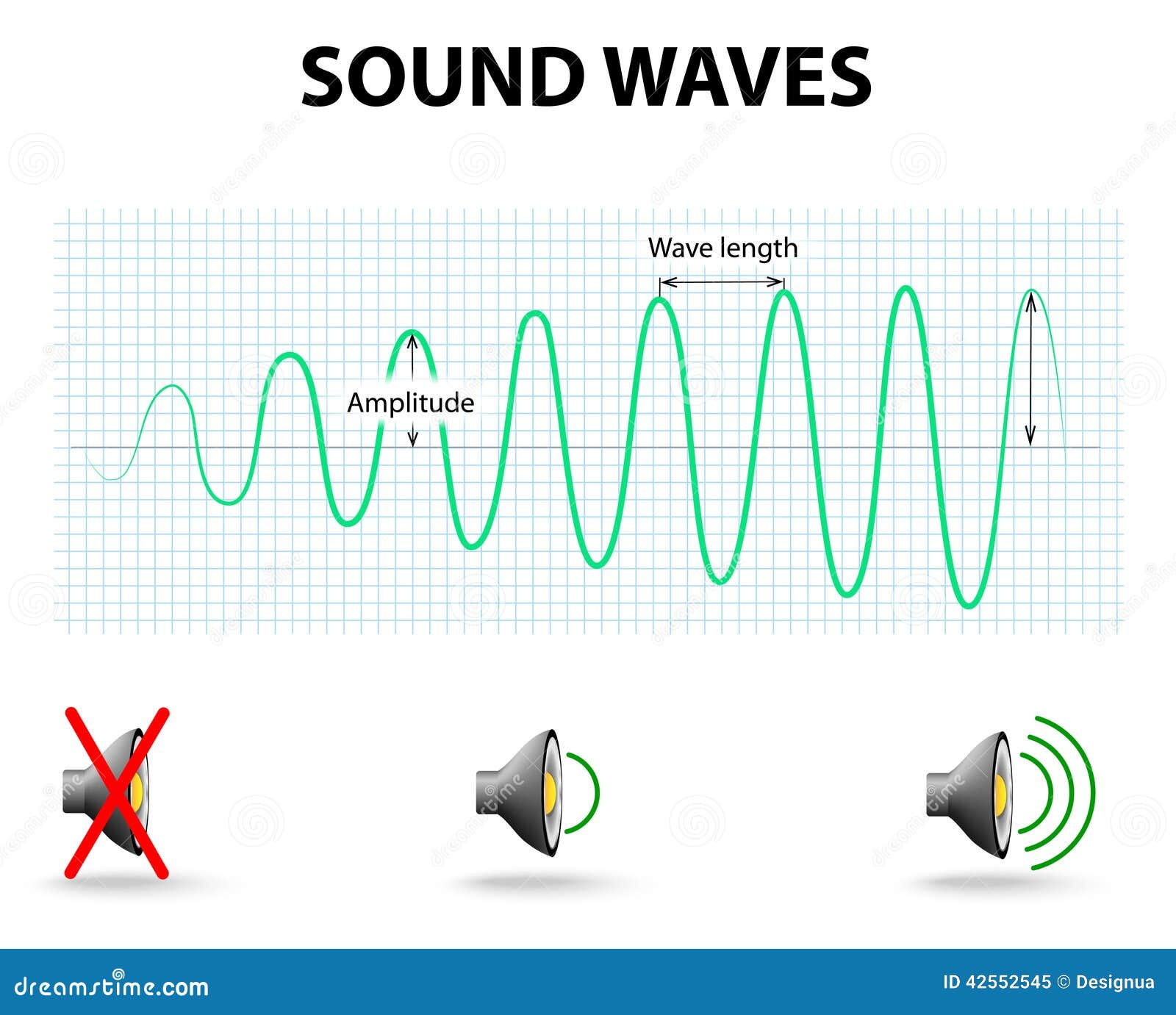Top Notch Tips About What Is The Loudest Wave

Sound Waves Diagram Quizlet
Delving into the Roaring Realm of Ocean Giants
1. Understanding Wave Acoustics and Measurement
Ever stood on a beach, the wind whipping through your hair, and felt the sheer power of the ocean as a massive wave crashes nearby? That booming sound, that primal roar — it's more than just noise. It's energy, pure and untamed. But what makes one wave louder than another? Is there a scientifically measurable "loudness" to these watery behemoths? Let's explore!
The term "loudest wave" isn't typically used in a strictly scientific sense like decibels for sound waves. Instead, we're usually talking about the most powerful, impactful, and yes, audibly imposing waves. The perceived loudness is tied to a few crucial factors: the size of the wave, its speed, and the way it breaks. A wave that builds to a colossal height and then slams down with incredible force is going to generate a much more significant sound than a gentle ripple lapping at the shore.
Think of it like this: imagine dropping a pebble into a pond versus throwing a boulder. The boulder creates a much bigger splash, right? The same principle applies to waves. A large, fast-moving wave displaces more water, creating a more substantial impact when it breaks. That impact translates into a louder, more resonant sound.
While we don't have a "wave-o-meter" measuring decibels of wave crashes (though wouldn't that be cool?), scientists use instruments like buoys and wave sensors to measure wave height, period (the time between crests), and direction. This data helps them understand wave energy and predict potentially dangerous conditions. The more energy a wave possesses, the more "loud" it is perceived to be, even without a formal decibel reading.

The Physics Behind the Roar
2. Wave Height, Breaker Type, and Underwater Topography
So, what are the specific ingredients that go into making a wave truly roar? Let's break down the key players.
First up: wave height. This one's pretty obvious. The taller the wave, the more potential energy it has stored within it. When that energy is released upon breaking, it creates a bigger and louder crash. Think of those legendary surf spots like Nazar in Portugal, where waves can reach over 100 feet high. Those aren't just big; they're deafening!
Next, we have the breaker type. There are generally three types of breaking waves: spilling, plunging, and surging. Spilling breakers are gentle and gradual, producing a soft, foamy sound. Plunging breakers, on the other hand, curl over and crash down with a dramatic impact, creating a loud, explosive sound. Surging breakers don't really break at all; they surge up the beach, creating a less defined, but still powerful, sound. Plunging breakers are usually the culprits behind the "loudest" waves.
Finally, underwater topography plays a crucial role. The shape of the seafloor can significantly affect how a wave builds and breaks. Shallow reefs or steep drop-offs can cause waves to steepen and break more violently, resulting in a louder crash. Conversely, a gentle, sloping seabed will tend to produce softer, spilling breakers.
Consider the infamous Mavericks in California. The unique underwater topography there causes massive waves to break with incredible force, creating a sound that can be heard for miles. These are the kinds of waves that make you feel small and insignificant, reminding you of the ocean's raw power.

Myth vs. Reality
3. Addressing Common Misconceptions About Giant Waves
The ocean is shrouded in mystery, and with that comes a whole host of myths and legends surrounding waves. Let's debunk some common misconceptions about what makes a wave truly "loudest" and most impressive.
One popular misconception is that all big waves are equally loud. As we discussed earlier, the type of break and the underwater terrain heavily influence the sound a wave produces. A massive wave breaking gently on a sandy beach won't generate the same earth-shattering roar as a smaller wave slamming against a rocky cliff.
Another myth is that rogue waves are always the loudest. Rogue waves are unusually large and unexpected waves that can appear seemingly out of nowhere. While they are certainly powerful and can produce a significant crash, their "loudness" depends on the factors we've already covered. Not all rogue waves are created equal when it comes to generating sound. The most important factors for loud waves are height and the way they break.
Sometimes people think all big waves originate from storms. While storms are a common source of large waves, they're not the only culprit. Underwater earthquakes or landslides can also generate massive waves, known as tsunamis, which can be incredibly powerful and loud, depending on their size and impact. Tsunami loudness often has to do with the scale and what it's smashing into on land.
Its easy to romanticize the ocean and its waves, but it's also essential to understand the science behind them. Separating fact from fiction allows us to appreciate the ocean's power responsibly and safely. Never underestimate the sea, especially when it's making its loudest pronouncements!

The Human Impact
4. Considering the Environmental Consequences of Intense Ocean Sounds
While the roar of a massive wave can be awe-inspiring to us humans, it's important to consider the impact of these intense sounds on marine life. The ocean isn't a silent world; it's filled with a symphony of sounds, from the clicks and whistles of dolphins to the low-frequency rumbles of whales.
Noise pollution from human activities, such as shipping, sonar, and offshore construction, is already a significant threat to marine ecosystems. Marine animals rely on sound for communication, navigation, and hunting. Excessive noise can disrupt these vital activities, leading to stress, disorientation, and even physical harm.
While the natural sounds of breaking waves are part of the marine environment, abnormally loud or frequent wave events, perhaps exacerbated by climate change, could potentially add to the overall noise burden. It's a complex issue, and more research is needed to fully understand the effects of wave noise on different marine species.
However, it's clear that we need to be mindful of the noise we introduce into the ocean. Reducing human-generated noise pollution will help create a healthier and more sustainable environment for marine life, allowing them to communicate and thrive in their natural habitat.

Experiencing the Majesty
5. Tips for Enjoying the Ocean's Fury Responsibly
There's no denying the allure of a massive wave. The raw power and untamed energy of the ocean are captivating, and witnessing a truly spectacular wave is an unforgettable experience. However, it's crucial to appreciate these natural wonders safely and responsibly.
Always check local weather conditions and surf reports before heading to the beach. Pay attention to warnings and advisories issued by lifeguards and coastal authorities. If there's a high surf advisory in effect, it's best to stay away from the water's edge altogether.
Never turn your back on the ocean. Waves can be unpredictable, and a rogue wave can quickly catch you off guard. Always be aware of your surroundings and keep a safe distance from the breaking waves.
If you're planning to surf or participate in any water sports, be sure to have the appropriate training and equipment. Know your limits and never overestimate your abilities. The ocean is a powerful force, and it demands respect. By following these safety tips, you can enjoy the majesty of the waves without putting yourself or others at risk.

FAQ
6. Answers to Your Burning Questions About Wave Acoustics
Still curious about the world of waves? Here are some frequently asked questions to further quench your thirst for knowledge.
Q: Is there a specific "loudest wave" ever recorded?
A: No, there isn't a formal record for the single "loudest wave." While wave height records exist, "loudness" is subjective and depends on multiple factors like breaker type and location.
Q: Can waves actually break the sound barrier?
A: While the water particles within a wave move, waves themselves don't break the sound barrier. That's more of an aviation thing!
Q: What makes the sound of a wave different from other natural sounds?
A: The sound of a wave is unique because its generated by a massive volume of water displacing air and impacting the seabed. The specific sound depends on the scale, breaker type, and surrounding environment, creating a complex mix of booms, crashes, and hisses thats unlike anything else.